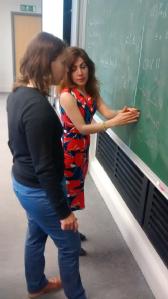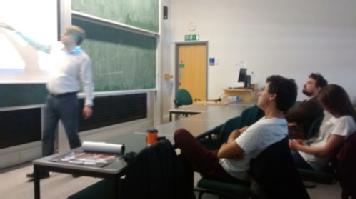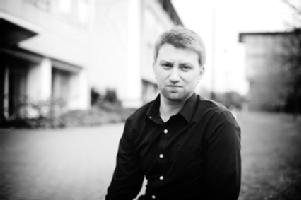Applied Computing News
The Alan Turing Institute and Intel to form Strategic Partnership
The Alan Turing Institute and Intel have agreed to form a long term strategic partnership to deliver a research programme focussed on high-performance computing and data analytics.
Researchers from both organisations will work together on the programme alongside co-funded research fellows and software engineers.
Launched this month at the British Library, the Alan Turing Institute research team includes members of the University of Warwick’s Departments of Statistics, Computer Science, Institute of Mathematics, Warwick Data Science Institute, and WMG’s Cyber Security Centre.
In addition, Intel will dedicate a hardware architecture team at the Institute’s facilities so that new algorithms developed by The Alan Turing Institute feed into the design of Intel’s future generations of microprocessors.
As well as conducting research, the partnership will train a new generation of data scientists through The Alan Turing Institute’s doctoral programme, ensuring students are equipped with the latest data science techniques, tools, and methodologies.
Minister for Universities and Science, Jo Johnson
Government is committed to ensuring the UK is the best place in Europe to innovate, patent new ideas and start a business. Big data offers huge potential for innovation which is why Government invested £42m in The Alan Turing Institute to secure the UK’s future in this important field.
I welcome this new strategic partnership with Intel which is testament to the strength of the UK’s research base and an exciting opportunity for growth in our digital economy.
Professor Andrew Blake, Director of The Alan Turing Institute
Intel is a global leader in computing innovation and I am delighted that it has become a strategic partner. This is a great development for the Institute and for data science globally.
Alan Turing was one of the first people to build an electronic computer. The partnership with Intel means that, true to his legacy, the Institute named after him will be contributing to the design of future generations of computers.
The goal of The Alan Turing Institute is to drive scientific and technological discoveries in the use of big data and algorithms, which will create new business opportunities, and accelerate solutions to global challenges. We have, today, taken a significant step towards that goal.
Christian Morales, Corporate Vice President, General Manager Intel EMEA
The Data Scientist is a very captivating and crucial job of the 21st century. With the right combination of people and technology, Big Data has the potential to solve big problems in public health, medicine, science, agriculture and engineering. We are committed to helping The Alan Turing Institute develop a fertile breeding ground for data scientists, with the greater purpose of driving critical data analytics across all industries.
The Alan Turing Institute is a joint venture between the universities of Warwick, Cambridge, Edinburgh, Oxford, UCL and the Engineering and Physical Sciences Research Council (EPSRC). The Institute will promote the development and use of advanced mathematics, computer science, algorithms and big data for human benefit.
DIMAP Logic Day 2015

On June 1st 2015, our Division of Theory and Foundations, jointly with DIMAP, organized DIMAP Logic Day 2015. The goal of the event was to bring together the UK community of researchers and graduate students interested in the study of logics, automata and games.
The event had an outstanding list of invited speakers from leading academic institutions and research labs (Nathalie Bertrand, INRIA Rennes; Antonin Kucera, Brno; Slawomir Lasota, Warsaw; Davide Sangiorgi, Bologna, INRIA Sophia Antipolis; Sylvain Schmitz, Cachan, INRIA Saclay, Warwick; James Worrell, Oxford) presenting recent advances in logic in computer science, and attracted over 40 participants from the UK and abroad.


Graham Cormode and Dan Kral awarded ERC Consolidator grants


The European Research Council (ERC) has just announced that two Warwick Computer Science Professors, Graham Cormode and Dan Kráľ, have been among the winners of its Consolidator Grant competition. ERC Consolidator Grants is funding 372 top mid-career scientists with €713 million to pursue their best ideas, as part of the European Union Research and Innovation programme Horizon 2020. Grants are worth up to €2.75 million each, with an average of €1.91 million per grant. The funding will enable them to consolidate their research teams and to develop their most innovative ideas.
Graham Cormode has been awarded an ERC Consolidator grant for a project entitled "Small Summaries for Big Data". The project focuses on the area of the design and analysis of compact summaries: data structures which capture key features of the data, and which can be created effectively over distributed data sets. The project will substantially advance the state of the art in data summarization, to the point where accurate and effective summaries are available for a wide array of problems, and can be used seamlessly in applications that process big data.
Dan Kráľ has been awarded an ERC Consolidator grant for a project entitled "Large Discrete Structures". The project will advance theory of combinatorial limits, which combines methods from analysis, combinatorics, computer science, group theory and probability theory to analyze and approximate large discrete structures (such as graphs, which can be used to represent large computer networks). The project will lead to proposing new mathematical methods to represent such discrete structures and to applications of the new methods to specific problems in extremal combinatorics and algorithm design.
